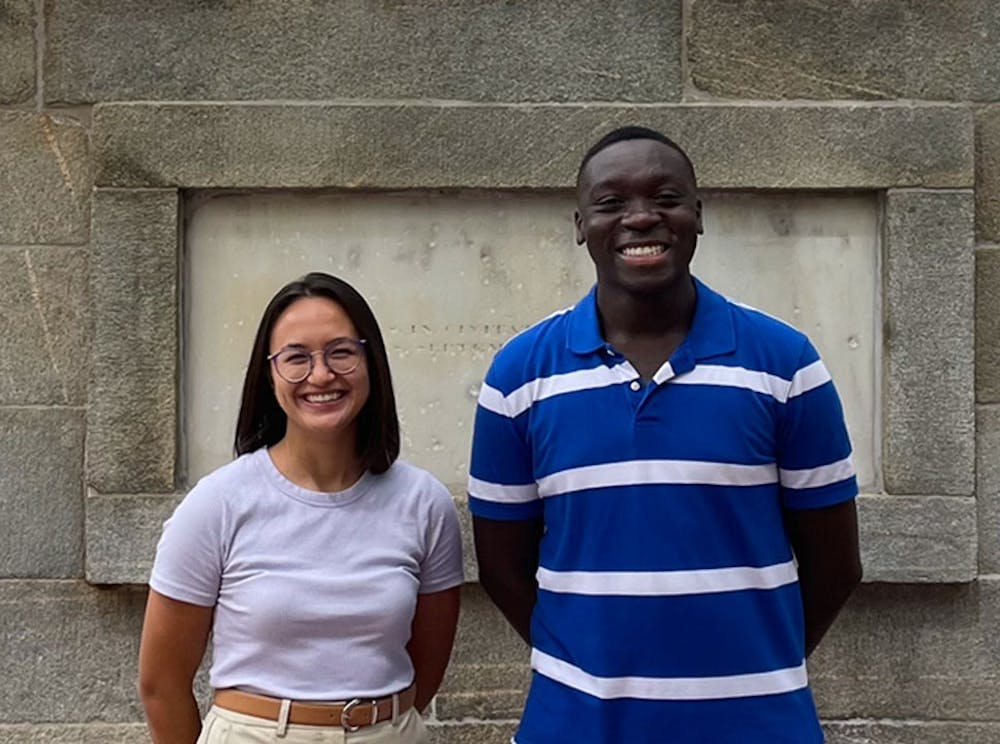Two University of South Carolina students are founding a magazine to offer the homeless a platform.
Homelessness in South Carolina is prevalent, with a total of 4,287 people on the streets, according to the United States Interagency Council on Homelessness. Craig Currey, CEO of Transitions Homeless Center, said there are several reasons for homelessness and “there’s usually two or three that unhinge a person.”
Reasons from relational problems to mental illness can escalate to leave individuals chronically homeless and on the streets four times in three years.
Through working as a poetry instructor at Transitions Homeless Center, third-year biochemistry and Spanish student Layne Scopano found there was a need for the homeless to be able to express their stories in a safe and comfortable space.
The project’s co-founder, fourth-year chemistry student Kwame Kennedy, became interested in broadening his knowledge on homelessness through an honors course that explores the subject in South Carolina.
Together, Scopano and Kennedy aim to recruit USC students to produce amagazine inspired by a Vancouver publication that will bring visibility and awareness to the experiences of the homeless in Columbia.
Kennedy noted the need to break stereotypical views of homelessness pertaining to laziness and unethical spending. Currey also said advocacy against these stereotypes is key.
Due to many of these stereotypes, those experiencing homelessness feel the need to hide or look down when citizens pass them, according to Scopano. The magazine is meant to help the homeless feel like they can look up and feel human again.
The project will give the underrepresented community a voice and educate Columbia in the efforts of creating efficient solutions.
Magazine content will center around three pillars working to bridge the gap in the community. The sections will feature personal narratives from homeless individuals, opinions on policy research and practices and reflections of students working with homelessness.
The narrative section will spotlight first-person accounts of the homeless experience from individuals in a variety of shelters. Scopano believes it is important for readers to understand the circumstances that led up to the homeless individuals current situation in a personal manner.

To gain empathy for homelessness and deconstruct stereotypes, Scopano said “the only way to combat ignorance is exposure to the truth, and the only truth that's going to be found is from first-person narrative of people experiencing homelessness, rather than projecting ideas, opinions or problems onto them, letting them speak towards their own experiences.”
While reading through politicians' meeting minutes, Scopano encountered the use of “degrading and subhuman” language when referring to the homeless, which she believes reflects the way they are treated.
The policy research section of the magazine will dive into the local legislation in place on a “deep and microscopic level,” according to Scopano, and the opinion writing will serve to call out negative treatment towards the homeless and advocate for their representation in legislation.
Kennedy said the conversation regarding policy is important to educate the community because “if the main people who vote for our politicians don't know what's going on with homelessness, then when the politicians make their policies, there's no one to hold them accountable.”
The final section of the newspaper will focus on student engagement and reflection. Kennedy and Scopano hope to hold events for students to directly interact with the homeless population of the city at shelters so they can then reflect on their experience and its impact.
Scopano and Kennedy plan to work with students, citizens around Columbia, legislators and the homeless to bring a more unified understanding of the homelessness issue to the cities population.
The main purpose of the project is “building empathy within the community because it is hard to have empathy for something that you can't connect to,” Scopano said. “Connecting and bridging those populations within our community, because they are members of our community and our society, and to build that empathy is going to help build the solutions that we discussed.”
Currey hopes the magazine inspires action in readers. He emphasized the need for concrete involvement with non-profits such as Transitions, which offers housing, healthcare, meals and more in partnership with over 50 organizations.
The magazine project is still looking to recruit members. Scopano and Kennedy expect the publication to be available in print and online to students and the greater Columbia community alike.

